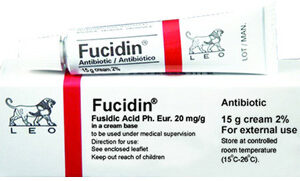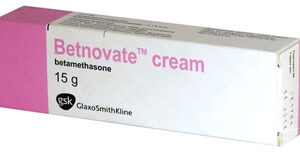Active Ingredient Identification
Accutane contains the active ingredient isotretinoin. Isotretinoin is a retinoid, which is a derivative of vitamin A and is highly effective in treating severe forms of acne, primarily nodular acne that hasn’t responded to other treatments.
Therapeutic Indications
The primary indication for Accutane is the treatment of severe recalcitrant nodular acne. It is typically reserved for cases where other therapeutic modalities, including antibiotics and topical treatments, have failed to provide adequate results.
Pharmacodynamics and Mechanism
Isotretinoin, the active ingredient in Accutane, works by reducing sebaceous gland size and sebum production, inhibiting sebaceous gland differentiation, and reversing keratinocyte adhesion abnormalities. Additionally, isotretinoin has anti-inflammatory properties that alleviate the inflammation associated with severe acne.
Pharmacokinetics Overview
Following oral administration, isotretinoin is absorbed primarily through the gastrointestinal tract. The bioavailability of isotretinoin is significantly enhanced when ingested with a high-fat meal. The drug is metabolized primarily by the liver into metabolites, including 4-oxo-isotretinoin, and is excreted in both urine and feces.
Dosage and Administration
Dosage of Accutane is individualized based on the patient’s weight and the severity of the acne. The typical starting dose is 0.5mg/kg daily, with a range between 0.5 to 1.0mg/kg/day. Treatment can last for 15-20 weeks. Variation in dosing regimens may be required for each patient, and adjustments can be made based on therapeutic response and the occurrence of adverse effects.
Dose Adjustment Considerations
Dosage adjustments may be necessary for patients experiencing intolerable side effects or for those with certain comorbid conditions. For instance, patients with hepatic impairment may require lower dosages due to decreased metabolism of the drug. Additionally, persistent or recurrent severe acne may necessitate a second course of therapy, initiated after the drug has been ceased for two months or longer to allow for the drug’s effects to materialize.
Route of Administration
Accutane is administered orally. The capsule form should be swallowed whole, with a full glass of water to reduce the risk of esophageal irritation. It should be taken as directed, with food or milk to enhance absorption.
Drug Interactions
Accutane has the potential to interact with various other drugs. Vitamin A supplements should be avoided due to the increased risk of vitamin A toxicity. Tetracyclines should not be taken with isotretinoin as they may increase intracranial pressure. The effectiveness of progesterone-only contraceptives may be reduced, and caution is advised when isotretinoin is taken with other medications metabolized by cytochrome P450 enzymes.
Monitoring Parameters
Patients on Accutane should be monitored closely throughout the course of therapy. Baseline and follow-up measurements of fasting blood sugar, liver function tests, triglyceride and cholesterol levels, and a pregnancy test (for women of childbearing potential) are required. Monitoring for symptoms of depression or suicidal ideation is also necessary due to the reported psychiatric effects of isotretinoin.
Adverse Effects Profile
Accutane can cause several adverse effects, some of which can be serious. Common adverse effects include dry skin, lips, and mucous membranes, itching, rash, dermatitis, photosensitivity, and temporary worsening of acne. More serious side effects may consist of hepatotoxicity, hypertriglyceridemia, visual disturbances, headache, mental health effects, and, in rare cases, idiopathic intracranial hypertension. Patients should be informed about these potential side effects before beginning treatment.
Use in Specific Populations
Isotretinoin is contraindicated in pregnant women due to the high risk of causing severe birth defects. Female patients of childbearing potential must comply with the pregnancy prevention program requirements due to the teratogenic effects of isotretinoin. Its use is also cautioned in patients with hepatic or renal impairment and in individuals with a history of depression or other psychiatric disorders.
Special Handling Instructions
Accutane capsules should be stored at controlled room temperature, protected from light and moisture. The medication is a teratogen and should be dispensed in compliance with the iPLEDGE program in the United States, ensuring that the risk of inadvertent exposure to pregnant women is minimized.
Patient Counseling Points
Patient education prior to initiating and during isotretinoin therapy is essential. Patients should be advised on the importance of adhering to recommended laboratory monitoring, using effective contraception, and avoiding blood donation during therapy and for at least one month after the last dose due to the risk of donated blood being given to a pregnant woman. Patients should also be counseled on the management of dry skin and lips, the importance of adequate hydration, and the avoidance of waxing and laser treatments for hair removal while on Accutane.






Reviews
There are no reviews yet.